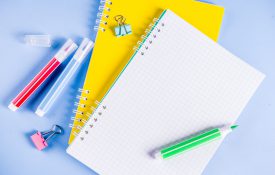-
How Trauma Affects Memory: Scientists Weigh In On The Kavanaugh Hearing
In Thursday’s testimony at Judge Brett Kavanaugh’s confirmation hearings, Christine Blasey Ford alleged Kavanaugh sexually assaulted her at a party in 1982, when she was 15 years old and he was 17. Kavanaugh staunchly denied
-

National Academies Release New Consensus Report on How People Learn
The National Academy of Sciences Board on Behavioral, Cognitive, and Sensory Sciences and Board on Science Education have released a consensus report on new advances in the science of learning.
-
Harvard Psychology Professor Discusses How Trauma Affects Memory
NPR’s Ari Shapiro speaks with clinical psychologist Richard McNally about memory retention following traumatic events in light of the sexual assault accusations brought against Judge Brett Kavanaugh.
-
Minding Education
Findings and concepts in psychological science can spark not only educational innovation, but new ways to assess whether specific teaching methods are effective, APS Fellow Stephen M. Kosslyn says in a guest column.
-
New Research From Clinical Psychological Science
A sample of research exploring process-based therapy, motor performance and risk for psychosis, and reports of recovered memories in the context of psychotherapy.
-
The Psychological Science of Studying, Learning, and Teaching
Research published in APS journals shows some of the strategies and traits associated with student success.

